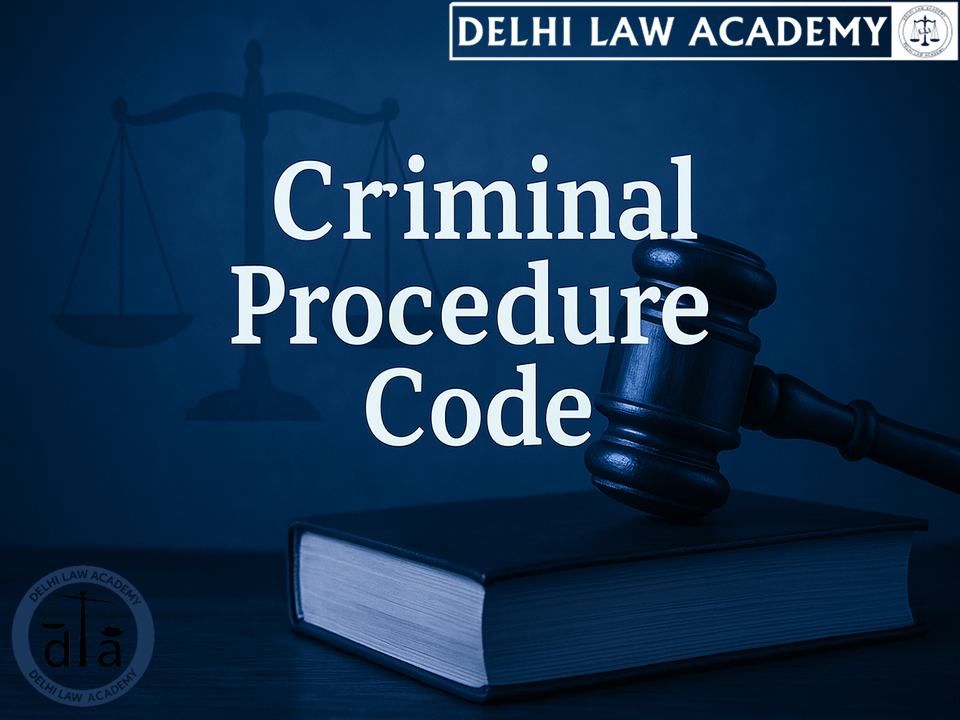
📜 THE LAW OF CANCELLATION OF BAIL
Preparation for RJS, DJS, PCS (J) and other Judicial Service exams
Below is the original text preserved exactly as provided. This block keeps punctuation, spacing, and line breaks intact for accurate reproduction.
THE LAW OF CANCELLATION OF BAIL Preparation for RJS, DJS, PCS (J) and other Judicial Service exams STATE (DELHI ADMN) v. SANJAY GANDHI [1978 SC] • Rejection of bail when bail is applied for is one thing; cancellation of bail already granted is quite another. • Cancellation of bail can by and large be permitted only if, by reason of supervening circumstances, it would be no longer conducive to a fair trial to allow the accused to retain his freedom during the trial. ************ CRIMINAL PROCEDURE CODE EXPLAINED The Criminal Procedure Code forms the bedrock of any and every Judicial Service exam in the country. Its thorough knowledge is a must for all aspirants of RJS, DJS, PCS (J) and every other Judicial Service exam. To help such aspirants, DELHI LAW ACADEMY JAIPUR has launched a series of study material modules on all important aspects of this vital part of their syllabus: *************** State (Delhi Admn) v. Sanjay Gandhi [1978 SC] • Rejection of bail when bail is applied for is one thing; cancellation of bail already granted is quite another. • It is easier to reject a bail application in a non-bailable case than to cancel a bail granted in such a case. • Cancellation of bail necessarily involves review of a decision already made and can by and large be permitted only if, by reason of supervening circumstances, it would be no longer conducive to a fair trial to allow the accused to retain his freedom during the trial. • The fact that prosecution witnesses have turned hostile cannot by itself justify the inference that the accused has won them over. • A brother, a sister or a parent who has seen the commission of crime, may resile in the Court from a statement recorded during the course of investigation. That happens instinctively, out of natural love and affection, not out of persuasion by the accused. The witness has a stake in the innocence of the accused and tries therefore to save him from the guilt. • Likewise, an employee may, out of a sense of gratitude, oblige the employer by uttering an untruth without pressure or persuasion • the objective fact that witnesses have turned hostile must be shown to bear a causal connection with the subjective involvement therein of the respondent • Without such proof, a bail once granted cannot be cancelled on the off chance or on the supposition that witnesses have been won over by the accused. Inconsistent testimony can no more be ascribed by itself to the influence of the accused than consistent testimony, by itself, can be ascribed to the pressure of the prosecution. • The issue of cancellation of bail can only arise in criminal cases, but that does not mean that every incidental matter in a criminal case must be proved beyond a reasonable doubt like the guilt of the accused. • Proof of facts by preponderance of probabilities as in a civil case is not foreign to criminal jurisprudence. The same standard of proof as in a civil case applies to proof of incidental issues involved in a criminal trial like the cancellation of bail of an accused. • Proving by the test of balance of probabilities that the accused has abused his liberty or that there is a reasonable apprehension that he will interfere with the course of justice is all that is necessary for the prosecution to do in order to succeed in an application for cancellation of bail. Facts and application: • Yadav made a statement on the following day stating how the film was burnt in the premises of the factory. Yadav's confessional statement was recorded by the Chief Metropolitan Magistrate on June 3. • They were granted pardon under Section 306 of the Code of Criminal Procedure on July 14, 1977. • The committal proceedings commenced in the court of Chief Metropolitan Magistrate • On February 21, the second approver Yadav was examined by the prosecution. • He resiled both from the statement which he made to the police under Section 161 as well as from his judicial confession. • On February 27, 1978, an application was filed by Delhi Administration, in the High Court of Delhi for cancellation of the respondent's bail. That application was dismissed. • On 14th February, the two approvers, Yadav and Khedkar, appeared at the C.B.I. office and filed written complaints dated the 13th that the respondent was making repeated attempts to call Yadav to meet him by sending the car with Ram Chander, driver of the respondent • That is in regard to the event of the 14th February. On the 17th Yadav and the respondent were seen together, the former leaving, the Maruti factory with the respondent in his car. This is supported by the affidavits of Sat Pal Singh, a constable of the Haryana Armed Constabulary who was on duty at the Factory, Ganpat Singh, a Postal Peon and Digambar Das, an Assistant Despatch Clerk in Maruti. It is undisputed that the respondent had gone for official work to the factory on the 17th. • There is more than satisfactory proof of the respondent having attempted to suborn Yadav. Whether Yadav succumbed to the persuasion is not for us to say. The Sessions Judge shall have to decide that question uninfluenced by anything appearing herein. We are concerned with the respondent's conduct, not with Yadav's reaction or his motives. Khedkar stuck to the complaint. • We are inclined to the view that the respondent ultimately succeeded in establishing contact with Yadav. Whether the respondent succeeded in achieving his ultimate object is beyond us to say except that Yadav turned hostile in the Committing Magistrate's court on February 21. (i) Yadav's complaint of the 14th February, (ii) Khedkar's complaint of even date (iii) Yadav's admission in his evidence that he did make the written complaint inspite of the fact that he had turned hostile (iv) affidavits of Sat Pal Singh, Ganpat Singh and Digambar Das in regard to the incident of the 17th furnish satisfactory proof that the respondent has abused his liberty by attempting to suborn the prosecution witnesses. • He has therefore forfeited his right to remain free. • But avoidance of undue hardship or harassment is the quintessence of judicial process. Justice, at all times and in all situations, has to be tempered by mercy, even as against persons who attempt to tamper with its processes • we allow the appeal partly, set aside the judgment of the High Court dated April 11, cancel the respondent's bail for a period of one month from today and direct that he be taken into custody ****************
💬 FAQs — Law of Cancellation of Bail
Search phrase: “when can bail be cancelled after granted supervening circumstances”
Search phrase: “State Delhi Admn v Sanjay Gandhi cancellation vs rejection of bail 1978”
Search phrase: “can bail be cancelled if witnesses turn hostile alone”
Search phrase: “standard of proof for cancellation of bail balance of probabilities”
- Evidence the accused attempted to suborn prosecution witnesses (e.g., documented approaches, affidavits).
- Fresh material showing the accused is tampering with evidence or influencing witnesses.
- Threats, intimidation, or other conduct after bail that materially endangers a fair trial.
The facts must show a causal link between the accused’s conduct and interference with justice — not mere suspicion.
Search phrase: “examples supervening circumstances cancel bail suborn witnesses”
Search phrase: “how to cancel bail procedure application remedies Sanjay Gandhi case”
📚 For full case text, affidavits and study notes on cancellation of bail, visit Delhi Law Academy
📘 Free Study Material for Judiciary Aspirants!
Download our FREE study material prepared by Delhi Law Academy’s expert faculty.
Contact us
📍 Delhi Law Academy – Jaipur Branch
6C, Tower 2, Coaching Hub, Pratap Nagar, Jaipur – 302033
📞 Phone:
+91 9911916552
+91 8447285606
✉️ Email:
contactus@delhilawacademy.com

